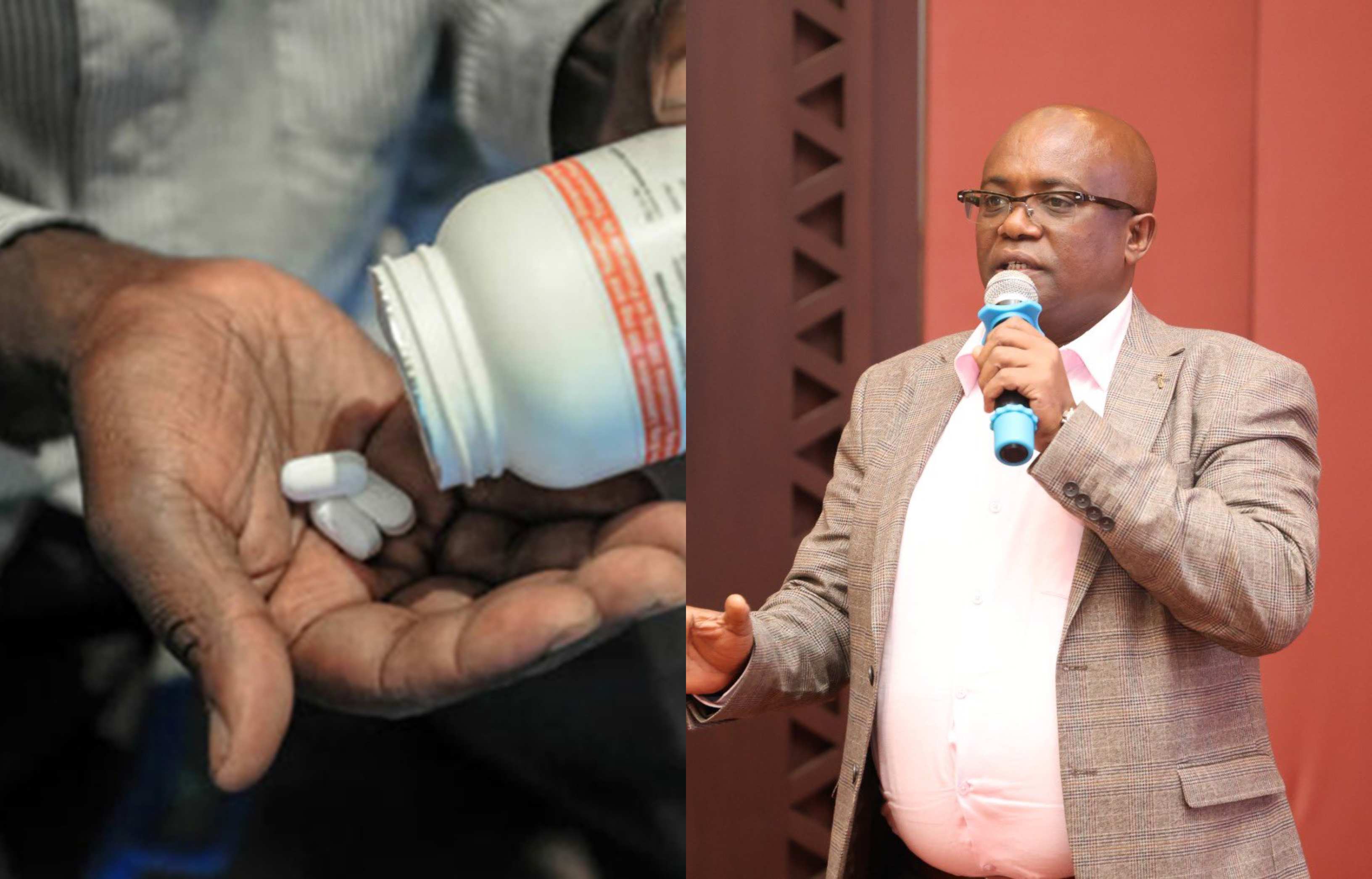
 Left: Somebody taking ARVs, RIght: Kemsa CEO Waqo Erjesa
Left: Somebody taking ARVs, RIght: Kemsa CEO Waqo Erjesa
The Ministry of Health has dismissed as inaccurate reports that the country was facing a shortage of antiretroviral drugs.
A section of the media on Tuesday said Kenya had run out of essential medical supplies, including ARVs and vaccines, and attributed the report to National Syndemic Diseases Council CEO, Dr Ruth Laibon-Masha.
Currently, Kenya has 1.378 million people living with HIV despite having recorded a 68 per cent reduction in AIDS-related deaths since 2013.
Official data shows that 78 per cent of people living with HIV in Kenya are on antiretroviral treatment.
"Without consistent access to these medications, we risk undoing years of progress in fighting the epidemic,” Dr Laibon-Masha is quoted as saying.
However, Kenya Medical Supplies Agency (Kemsa) CEO Waqo Erjesa said on Wednesday they have sufficient stocks of the HIV medicines.
"I just wanted to clear that air that we have no stockout of ARVs. We are stable; we are okay courtesy of the government of Kenya and the Global Fund (and) government of the United States through different formations. All these combined, we have enough ARVs," Erjesa said.
He spoke at a press briefing flanked by Health CS Deborah Barasa and Director General for Health Dr Patrick Amoth.
Erjesa said a misunderstanding may have arisen from changes in the regimen of the drugs as recommended by the World Health Organization (WHO).
"There was a change of the medicines that were being used specifically dolutegravir (DTG) was being used instead of protein inhibitor Azatanavir. So that transition, changing from one medication to another, maybe they were not quite informed that we are using DTG," he explained.
WHO recommends the use of DTG as the preferred first-line and second-line treatment for all populations, including pregnant women and those of childbearing potential.
"That transition may have confused a few people so let me assure Kenyans that we have no shortage of ARVs, we are stable and our clients should not have any worry," Erjesa said.
Dr Amoth, on his part, said that by the end of January, the ministry will receive 2.34 million doses of BCG vaccines primarily intended for infants and children who are at risk of tuberculosis (TB).
WHO recommends the vaccine in areas where TB is prevalent and for children in areas where TB is less common but they are at high risk of exposure.
Reports had indicated that the BCG vaccine has been out of stock for over a month with some counties completely out of stock while others were on limited supply.
"We are looking at sustainable solutions to ensure we don't have a shortage," Dr Amoth said.


